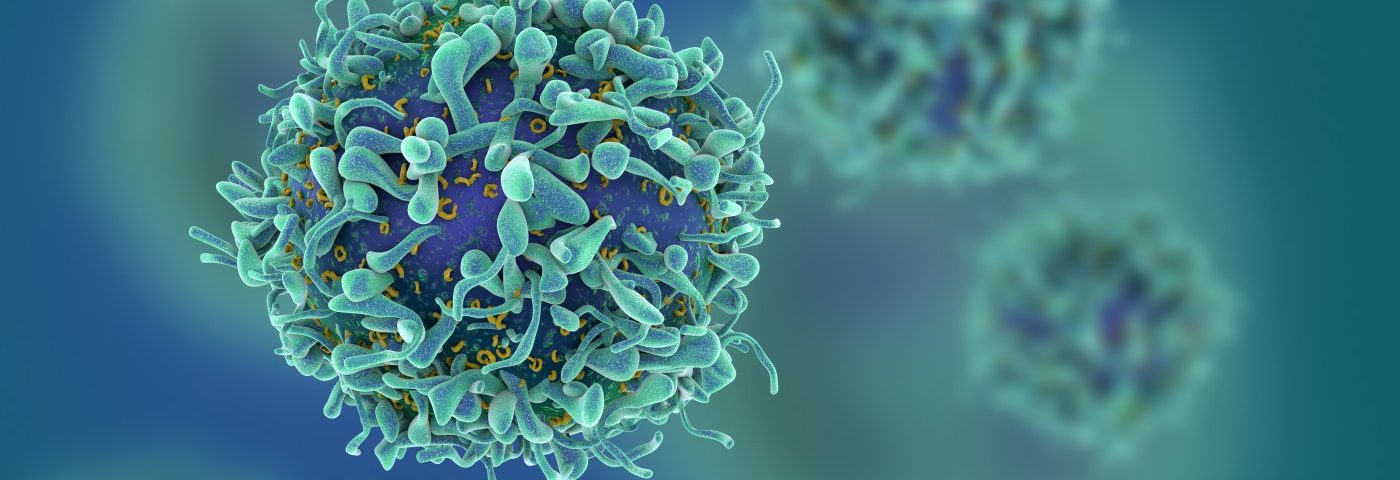In a preclinical study, researchers discovered that the protein moesin plays a key role in shutting down the immune response against cancer cells. These results support moesin as a potential target for anti-cancer therapeutics.
The study, “Membrane-organizing protein moesin controls Treg differentiation and antitumor immunity via TGF-β signaling,” was published in the Journal of Clinical Investigation.
Moesin is a protein important for organizing membrane domains and receptors at the surface of regulatory T-cells (Tregs), cells that play key roles in reducing the immune system response. Hence, cancer cells co-opt Tregs’ function to avoid being destroyed by the immune system.
T-regs become fully differentiated upon in vitro stimulation of a receptor with transforming growth factor beta (TGF-beta). This means that they are fully matured, and after this differentiation process they are able to suppress a broad range of undesired immune responses in order to maintain immune homeostasis and tolerance.
Scientists at the Medical University of South Carolina (MUSC) discovered that TGF-beta increases moesin expression in cells, and that moesin is important for TGF-beta–induced Tregs (iTregs).
In fact, loss of moesin significantly impairs the development and function iTregs.
“Because moesin supports greater Treg production, we could design moesin inhibitors to halt or slow active TGF-beta signaling and slow down Treg conversion so that anti-tumor T cells can have a chance to see the cancer and eradicate it,” Zihai Li, MD, PhD, chair of the Department of Microbiology and Immunology at MUSC and the study’s lead author, said in a press release.
Scientists discovered that moesin interacts with a TGF-beta receptor (TbetaR-II) increasing its availability at cells’ surface and, consequently, enhancing TGF-beta-mediated signaling. Accordingly, loss of moesin impaired TGF-beta signaling, which reduced the development and function of Tregs.
The potential role of moesin in cancer therapies was highlighted in additional experiments, where the team investigated the impact of moesin loss on what is known as adoptive T-cell therapy. This therapeutical approach consists in retrieving tumor-killing T cells from a cancer patient, modifying them to recognize cancer cells, and amplifying them in culture. Then, the cells are injected back into the patient to effectively kill tumor cells. However, these cells are often short-lived, which may result in cancer recurrence.
The MUSC scientists showed that if they deplete mosein in a mouse model of cancer and then retrieved anti-cancer CD8+ T cells, these cells not only replicated faster but also survived longer. In fact, mice with moesin relapsed after therapy, while those lacking moesin were cured.
“When the mice lacking moesin had no recurrence, this was really exciting. We were not only deleting moesin but, when we gave T cells to the active tumors, those T cells could control the cancer for a very long time,” said Ephraim Ansa-Addo, PhD, the study’s first author and a postdoctoral fellow in the Department of Microbiology and Immunology.
Overall, these results suggest that moesin is a potential strong target for future anti-cancer therapies and Treg-related immune disorders.
“These findings are very interesting for the field and provide a lot of directions for further research into alternative therapies,” concluded Li.


